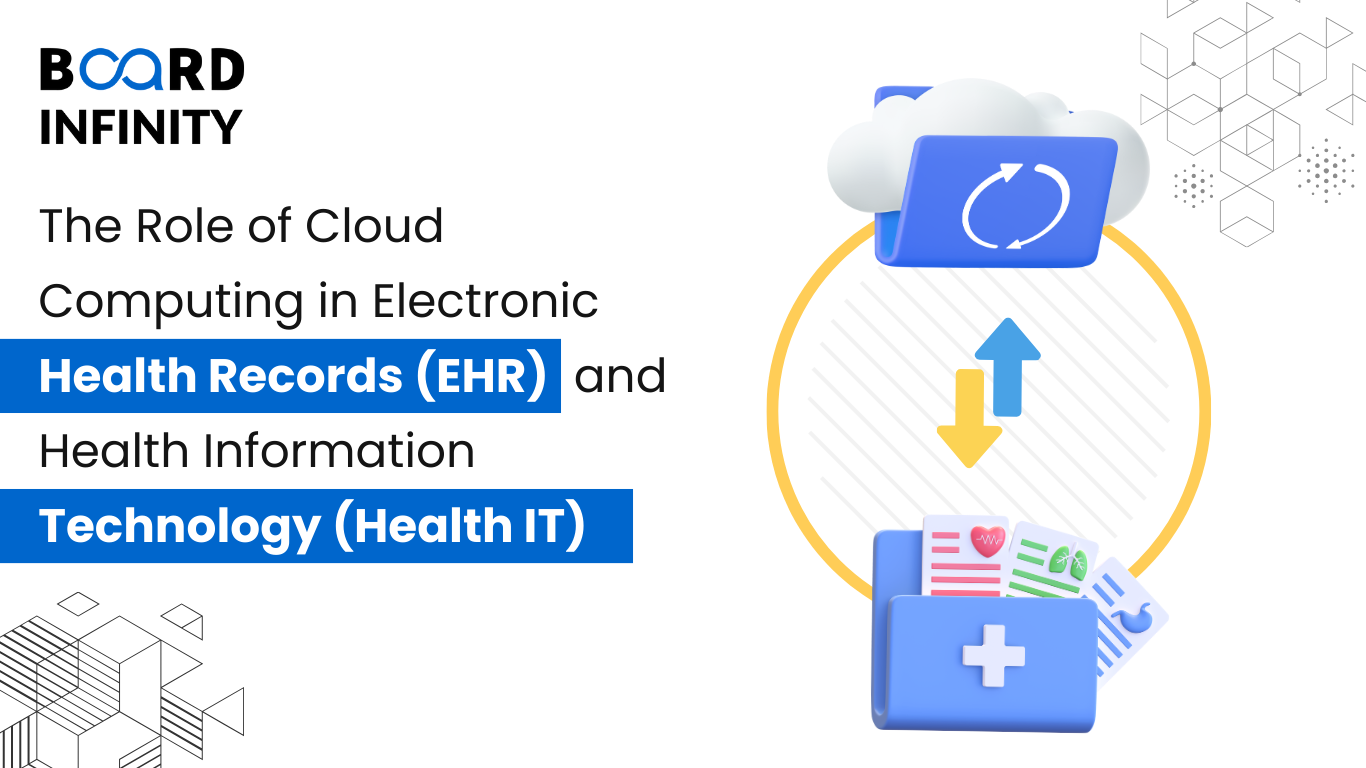The Role of Cloud Computing in Electronic Health Records (EHR) and Health Information Technology (Health IT)

Cloud computing has emerged as a cornerstone technology in the healthcare industry, revolutionizing the management and accessibility of Electronic Health Records (EHR) and driving the evolution of Health Information Technology (Health IT). This article explores the pivotal role that cloud computing plays in transforming the landscape of healthcare data management, patient care, and innovation.
Introduction: Transforming Healthcare Data Management
The shift from paper-based medical records to electronic systems has gained unprecedented momentum with the empowerment of cloud computing. Leveraging remote servers for storing, managing, and accessing healthcare data, this transformative approach ensures scalability, fortified security, and heightened accessibility.
The synergy between cloud computing and healthcare heralds an era where information flows seamlessly, enhancing efficiency and facilitating a dynamic landscape where patient data is not just stored but actively leveraged for optimized and personalized healthcare solutions. The integration of cloud computing within ambulatory EMR (Electronic Medical Record) systems marks a significant stride in the transition from paper-based to electronic records. Cloud computing empowers these systems by providing scalable, secure, and accessible storage solutions for healthcare data.
This transformative approach ensures that ambulatory EMRs can effectively manage and leverage patient data stored in the cloud. The synergy between cloud computing and ambulatory EMR systems fosters an environment where information flows seamlessly across healthcare settings, enhancing efficiency and enabling the utilization of patient data for more personalized and optimized healthcare solutions. This integration not only streamlines data management but also lays the foundation for dynamic and proactive patient care approaches.
Advantages of Cloud Computing in EHR
1. Enhanced Accessibility and Interoperability
Cloud-based EHR systems offer significant advantages, such as:
- Providing healthcare professionals with effortless access to patient records across various locations and devices,
- Facilitating improved care coordination among different healthcare providers through a seamless exchange of information,
- Enabling efficient data sharing and interoperability between diverse healthcare entities.
2. Scalability and Cost-efficiency
The scalability and cost-efficiency of cloud computing in healthcare are characterized by:
- The ability to dynamically adjust storage and computing resources in line with evolving needs,
- Reducing the need for substantial upfront investments in physical infrastructure,
- Significantly cutting down operational costs related to hardware maintenance and upgrades.
Security and Compliance in Cloud-based EHR
1. Robust Security Measures
Cloud computing in healthcare is underpinned by stringent security protocols, including:
- The deployment of sophisticated encryption methods to protect data,
- Implementing meticulous access controls to prevent unauthorized data access,
- Regularly updating security measures to combat emerging cyber threats.
2. Data Backup and Disaster Recovery
Key features of cloud-based EHR systems in this area are:
- Implementing robust backup strategies that ensure the safety and integrity of healthcare data,
- Providing comprehensive disaster recovery capabilities to counteract data loss from system failures or external events.
Innovation and Advancements in Health IT
1. Facilitating Research and Analytics
Cloud computing is instrumental in healthcare research and analytics by:
- Enabling the utilization of advanced data analytics tools and AI algorithms,
- Facilitating the extraction of valuable insights from large volumes of healthcare data,
- Supporting groundbreaking medical research and predictive health management by harnessing the vast pool of data available in EHR systems, much like the precision and efficiency achieved through Oncology RCM solutions.
2. Telehealth and Remote Patient Monitoring
The role of cloud technology in telehealth and remote patient monitoring includes:
- Empowering healthcare providers to conduct remote consultations and real-time monitoring,
- Facilitating the seamless exchange of medical data between patients and healthcare professionals,
- Enhancing patient care by providing timely and accessible medical services, regardless of geographic location" to "Enhancing patient care by providing timely and accessible medical services, thus maximizing the benefits of Electronic Health Records regardless of geographic location
Challenges and Considerations
1. Data Privacy and Compliance
Key considerations in this area involve:
- Ensuring continuous adherence to strict privacy regulations such as HIPAA,
- Maintaining a vigilant approach to regularly updating and assessing security protocols,
- Upholding the trust and confidentiality essential in patient care by prioritizing data privacy.
2. Interoperability and Integration
Challenges in interoperability and integration require:
- Efforts to standardize data formats across different EHR systems and healthcare applications,
- Working towards seamless integrations to ensure smooth and efficient data flow,
- Breaking down data silos to improve patient care and healthcare operations.
Future of Cloud Computing in Health IT
- Advancements in AI and Machine Learning
The future of cloud computing in healthcare is tied to advancements in AI and machine learning, with potential impacts like:
- Enhancing the precision of diagnostics and treatment plans through AI-driven analysis,
- Leveraging large datasets stored in the cloud for more personalized medicine and care strategies.
2. Expansion of Remote Healthcare Services
The continued development of remote healthcare services through cloud computing will likely see:
- An increase in sophisticated telehealth and remote monitoring platforms,
- Enhanced access to quality healthcare, particularly in remote or underserved regions.
Conclusion: Cloud Computing's Impact on Healthcare Transformation
In summary, cloud computing significantly influences healthcare by:
- Facilitating a shift towards more efficient, accessible healthcare delivery,
- Providing robust security and compliance measures to protect patient data,
- Driving innovation in patient care, diagnostics, and treatment planning,
- Addressing challenges such as data privacy and interoperability head-on.
As healthcare continues to evolve, the integration of cloud computing will be crucial in shaping a future where healthcare is not only more efficient but also more patient-centered and accessible.
